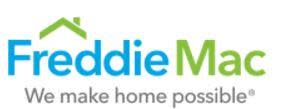Higher Property Prices and Mortgage Rates Offset Record Net Operating Income Growth in Freddie Mac’s First Quarter AIMI

MCLEAN, Va., June 21, 2022 (GLOBE NEWSWIRE) -- The Freddie Mac (OTCQB: FMCC) Multifamily Apartment Investment Market Index® (AIMI®) fell by 5.3% in the first quarter of 2022, with the index down 6.1% compared to the first quarter of 2021. Significant multifamily property price growth and higher mortgage rates offset dramatic net operating income (NOI) rise driving the Index down for a second consecutive quarter. Over the past year, property prices grew by 21.1%, NOI grew by 19.8% and mortgage rates increased by 41 basis points, the largest increase since 2018.
“The offsetting impact of price growth and mortgage rates on increasing net operating income indicate investors are paying more per dollar of income than a year ago,” said Steve Guggenmos, vice president of Research & Modeling at Freddie Mac Multifamily. “Despite seeing dramatic net operating income growth, we are seeing a decline in the Index nationally and across all markets suggesting it may be increasingly difficult to find attractive multifamily investment opportunities.”
Over the quarter, AIMI decreased in the nation and all 25 markets. NOI growth was very strong, but property price growth was far greater and mortgage rates increased significantly.
National NOI growth was 2.5% and every metro experienced growth. The fastest grower was Miami at 5.6% while the slowest grower was Portland at 0.9%.
Property prices grew in the nation and in every market. Price growth moderated compared with last quarter but was still strong at 4.3% for the nation.
Mortgage rates increased by 29 bps – the largest increase since the second quarter of 2018.
Over the year, AIMI decreased in the nation and 18 of the 25 markets, while 7 markets experienced growth. Like last quarter, metros commonly experienced record-breaking annual NOI growth and property price growth.
NOI growth was universally positive for the nation and all markets. Amazingly, NOI growth exceeded 10% in all but one metro (Minneapolis). Orlando led the way with 33.1% annual growth, which was the single largest annual NOI growth of any metro in the entire history of AIMI.
Property prices grew in the nation and in every market. Like NOI growth, property price growth was astonishing. The slowest grower was Chicago at 4.9%, while prices in Phoenix grew by 45.6%.
Mortgage rates increased by 41 bps – the biggest annual increase since the fourth quarter of 2018
In addition to national and local values, a sensitivity table is available that captures how the index value adjusts based on changes in certain underlying variables. Additional information about AIMI is on the Freddie Mac Multifamily website, including FAQs and a video.
AIMI is an analytical tool that combines multifamily rental income growth, property price growth and mortgage rates to provide a single Index that measures multifamily market investment conditions. A rise in AIMI from one quarter to the next implies an increasingly favorable environment for multifamily investment opportunities, while a decline suggests that attractive investment opportunities are becoming more difficult to find compared with the prior period.
Freddie Mac Multifamily helps ensure an ample supply of affordable rental housing by purchasing and securitizing mortgages on apartment buildings nationwide. Roughly 90% of the mortgages purchased support rental units for households earning 120% of area median income or below. Freddie Mac securitizes about 90% of the multifamily loans it purchases, thus transferring the majority of the expected credit risk from taxpayers to private investors.
Freddie Mac makes home possible for millions of families and individuals by providing mortgage capital to lenders. Since our creation by Congress in 1970, we’ve made housing more accessible and affordable for homebuyers and renters in communities nationwide. We are building a better housing finance system for homebuyers, renters, lenders, and taxpayers. Learn more at FreddieMac.com, Twitter @FreddieMac and Freddie Mac’s blog FreddieMac.com/blog.
MEDIA CONTACTS:
Mike Morosi
(703) 918-5851
Michael_Morosi@FreddieMac.com
Erin Mancini
(703) 903-1530
Erin_Mancini@FreddieMac.com


 Yahoo Finance
Yahoo Finance 